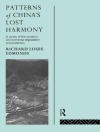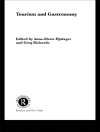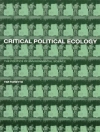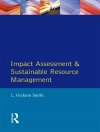At a time of intense theoretical debates in urban studies, the research practices underlying such theories have not received the same attention. This original and creative text interrogates the methodological underpinnings of contemporary urban scholarship, with reference to different global sites and situations, as well as to recent debates around postcolonial, planetary, and provincialized urban theories. Rather than reducing methodological questions to a matter of tools and techniques, it unearths the complex connections between theory, research design, empirical work, expositional style, and normative-ethical commitments.
Innovatively co-produced by faculty and graduate students from a variety of disciplines, Urban Studies Inside-Out it is comprised of three parts.
- Part I: An introduction to the field of urban studies and its changing theories, methodological norms and practices.
- Part II: Features a collection of methodological essays co-authored by graduate students, deconstructing the research designs, the methodological practices, and the modes of presentation and representation across recent urban monographs.
- Part III: Consists of informative keyword primers which explicate the key concepts and formulations in the field of urban studies.
This volume offers a welcome intervention within urban studies, and stands to make a valuable contribution for graduate students and researchers.
Tabla de materias
Part 1 Reorientations
1 Urban studies unbound: postmillennial spaces of theory, by Helga Leitner, Eric Sheppard and Jamie Peck
2 Doing urban studies: navigating the methodological terrain, by Eric Sheppard, Helga Leitner and Jamie Peck
3 Urban studies inside/out: a guide for readers and researchers, by Jamie Peck, Helga Leitner and Eric Sheppard
Part 2 Methodological essays
4 Constructing a feminist urban political economy: on Leslie Kern’s Sex and the revitalized city, by Kyle Loewen, Devra Waldman and Mikael Omstedt
5 Dreaming and scheming the ′world-class′ city: on Asher Ghertner’s Rule by Aesthetics, by Dimitar Anguelov, Emma Colven and Prajna Rao
6 Fluid assemblages: on Lisa Björkman’s Pipe Politics, by Tanya Matthan, Emma Colven and Hudson Spivey
7 Constructing and contesting the banlieue: on Mustafa Dikeç’s Badlands of the Republic, by Nina Ebner, Joe Penny and Andre Comandon
8 Frustrated encounters: on Ahmed Kanna’s Dubai: The City as Corporation, by Nafis Hasan, Hudson Spivey and Kenton Card
9 Rescaling the urban: on Neil Brenner’s New State Spaces, by Joseph A Daniels, Mikael Omstedt and Dimitar Anguelov
10 Ethnography in the boundary zones: on Robert Fairbanks’ How it Works, by Samuel Nowak and Thomas Howard
11 Ethnographic exchanges: on Philippe Bourgois’ In Search of Respect, by Tom Howard, Samuel Nowak and Fernanda Jahn-Verri
12 Grounding the housing question in land: on Anna Haila’s Urban Land Rent, by Kenton Card, Joseph A Daniels and Andre Comandon
13 Mapping urban governance: on You-tien Hsing’s Great Urban Transformation, by Tyler Harlan and Jaehyeon Park
14 Claiming rights to the city: on James Holston’s Insurgent Citizenship, by Carolyn Prouse and Fernanda Jahn-Verri
15 Visualizing liquid cities: on Matthew Gandy’s Fabric of Space: Water, by CS Ponder and Sophie Webber
16 Writing the heterogeneous city: on Abdou Maliq Simone’s City Life from Jakarta to Dakar, by Prajna Rao and Andre Comandon
17 In search of ordinary ′elsewheres′ in global urbanism? On Ola Söderström’s Cities in Relations, by Rachel Bok
18 Urban comparison, quantified: on Michael Storper, Thomas Kemeny, Naji Makarem and Taner Osman’s The Rise and Fall of Urban Economies, by Andre Comandon, Kenton Card and Joseph A. Daniels
Part 3 Reflections
19 Turning Urban Studies Inside/out, by Jamie Peck, Helga Leitner and Eric Sheppard
APPENDIX: Keywords
Bibliography
Sobre el autor
I seek to develop general explanations for the spatial organization and dynamics of economic activities in capitalist societies, and to determine how a geographical perspective illuminates such explanations. Economists recently have rediscovered economic geography as a place to apply economic theory, but my research shows that a proper incorporation of the spatial dimension of society challenges much of what economic theory tells us. A geographical approach can capture the complex evolution of economic landscapes and the various non-economic processes affecting economic change.
Geography has basic theoretical contributions to make to knowledge, not just empirical elaborations. I am interested in how geographers think about the world, and the changing philosophical and methodological disputes in geography. Good scholarship in geography must be grounded in an understanding of these issues, requiring familiarity with contemporary debates in philosophy and methodology outside geography.
I examine the geography of development at scales ranging from the global to the local. Development possibilities don′t just depend on local (site) conditions; the interdependencies between places are just as important. The ability of local actors and institutions to effectuate change must be evaluated in this context, to avoid erroneously blaming local conditions and actions for local underdevelopment. I am concerned with human welfare and inequality; with how socio-spatial positionality shapes the conditions of possibility of livelihood practices. Underlying much of my research is a concern for the persistent and too often expanding social and geographic inequalities in society, for the processes creating these, and for what can be done to create more equitable societies and a greater respect for the non-human world. I have spent considerable effort promoting radical geography, where this theme is of central importance.
I have always been interested in the economic interdependencies between places (trade, investment, technology diffusion, information and migration flows). While a graduate student, I took up radical political economy as an approach to economic geography, co-authoring The Capitalist Space Economy with my first doctoral student, Trevor Barnes. I remain fascinated by the geographical dynamics of economic change at different scales, and how these are shaped by the rapidly globalizing capitalist world economy we live in. Currently, I am examining the role of trade, and free trade discourses in shaping global change, since Britain adopted free trade in 1846.
I have also long been interested in the evolution of geography as a discipline, its contested modes of inquiry, and its position as an academic discipline. For example, I co-authored a National Research Council study titled Rediscovering Geography, and co-edited a book of essays on scale across the discipline: Scale and Geographic Inquiry. I have closely explored and tracked the evolution of economic geography, and its contentious relationship with mainstream and heterodox Economics, co-editing A Companion to Economic Geography, Reading Economic Geography, and Politics and Practice in Economic Geography.
I study the two-way relationship between the development of geographic information technologies and social change. I have put much effort into promoting scholarship that transcends pre-existing divides between the geographic information systems and critical geography communities, catalyzing a new generation of scholars finding innovative ways to put these approaches into conversation with one another.
Finally, I have long been interested in the evolution of urban life, particularly the intersections between economic processes and urban politics. Cities must be understood not only as distinctive kinds of places, but as places that are penetrated by co-evolving with nature, larger scale processes and one another. Current research examines the emergence, in and beyond cities, of contestations that call into question the generality and influence of neoliberalism, recently co-editin












